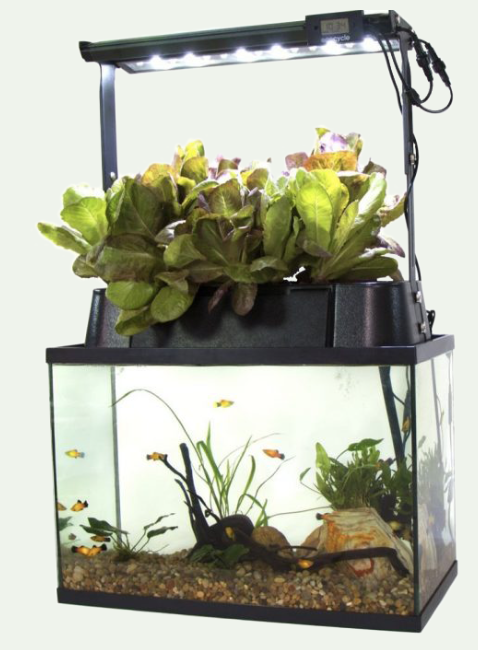PLANTS, LLC partnered with Wheeling Middle School on a proposal to the California Foundation for Agriculture in the Classroom: Look at Agriculture…Organically! Our application called Organic Hydroponics was selected for funding!
Jenny Craig, the lead teacher on the project, is a special education teacher, and her students are also the leaders in the school outdoor gardening project. We are all very excited to receive this award.

The Organic Hydroponics project will provide students with hands-on activities and plant production projects that will help them understand key principles of organic farming practices. A series of classroom activities will introduce students to organic hydroponics practices by using the Eco-Cycle Aquaponic System.
The project goals include teaching students the benefits as well as challenges of using organic farming practices in hydroponic, aquaponics, and outdoor gardening contexts. Students will learn basic principles of organic growing by learning about water quality and the need to balance nutrient flow between the fish and plants. Students will explore how to use organic materials and nutrients while maintaining water quality in an aquaponics-based plant production system. Students will explore important concepts related to selection and use of fertilizers such as parts per million. They will also learn how to develop and document a crop planting and production schedule.
Students involved in Wheeling Middle School’s community garden will learn about how organic growing methods can promote ecological balance, conserve biodiversity, and promote agricultural practices that are good for the environment. Students will learn key principles of organic farming by setting up and maintaining an aquaponic system in their classroom that follows the organic certification guidelines and practices. Since successful and productive hydroponic and aquaponic systems require starting out with and maintaining plant-potable water, students will learn to conduct basic water testing, using the GLOBE (www.globe.gov) water testing protocols and instruments.
Students will learn how synthetic and organic fertilizers differ. They will learn that synthetic fertilizers are “man made” inorganic compounds – usually derived from by-products of the petroleum industry. Examples of synthetic fertilizers include ammonium nitrate, ammonium phosphate, superphosphate, and potassium sulfate. Organic fertilizers are materials derived from plant and animal parts or residues. Examples are blood meal, compost, bat guano, manure, seaweed, and worm castings.
Once the hydroponic plant system is set up with appropriate portions of organic nutrients for the lettuce and other garden greens to be grown, the students will create a water monitoring plan that follows the principles and practices outlined in the transition to organic guidelines.
The water quality testing, process of setting up the hydroponic system, selection and integration of organic nutrients, management of plant growth processes, and development of a water monitoring plan will be implemented with help and guidance from local hydroponics education expert, Dr. Laurie Ruberg, who has agreed to partner with Wheeling Middle School teacher, Jenny Craig and school principal, Richard McCardle.
The Organic Hydroponic project will enhance and expand activities being offered to Wheeling Middle School students through the Grow Ohio Valley Hydroponics in Schools Try This WV Stage 2 grant. Students will be building and supporting a traditional hydroponics and organic aquaponics system in neighboring classrooms. Having these two systems available for comparison will help students see how hydroponic and aquaponic systems differ and share many similar characteristics. Students will see how important water quality, water testing, and avoidance of synthetic chemicals is for both systems.
PLANTS CEO, Dr. Laurie Ruberg, is the hydroponic consultant working with Wheeling Middle School on the Organic Hydroponics project. She has helped schools integrate hydroponic systems into their K-12 curriculum since her small business, PLANTS was established in 2013. Dr. Ruberg has worked with school districts in Allegheny and Elizabeth Forward counties in western Pennsylvania, as well as a hydroponics education project for North Elementary School in Morgantown, WV. In 2014, Ruberg partnered with a faculty member at Wheeling Jesuit University to establish a plant science lab at the university to test the feasibility of five different hydroponic systems for educational applications in K-12 classrooms. Ruberg recently served as an instructor for the Asociación Hidropónica Mexicana international course held in Toluca, Mexico (March 2018), leading sessions on Water Quality, Growing Hydroponic Strawberries, and Hydroponic Substrates. Ruberg is currently serving as a subject matter expert on the Grow Ohio Valley project called Hydroponics in Schools.
